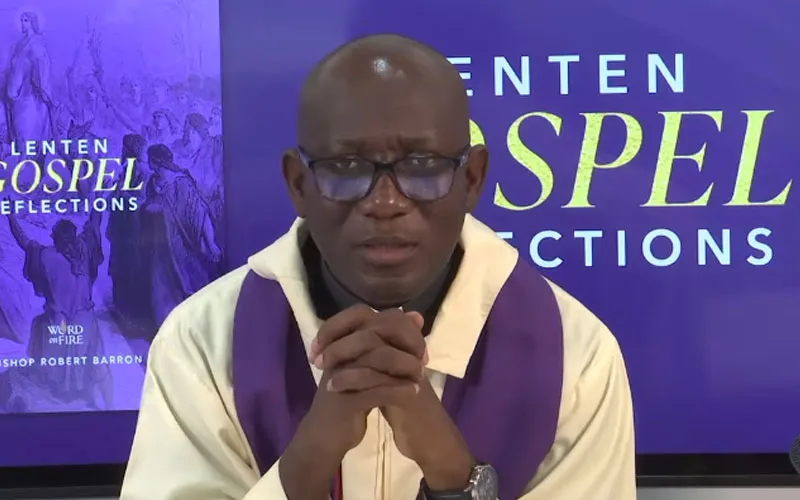“The Church must think about giving these people deep formation, and giving them sustainable livelihoods. We must be seen as people who are not just partners in projects. The Church must identify with, and journey with people who are suffering,” he said.
Fr. Manneh shared with ACI Africa that he has grown up witnessing how young Gambians lose their lives because of the illegal migration.
“I was a Seminarian in Ghana when my former classmate left the country and died when he was electrocuted by a fence he was trying to jump across in the company of others that were trying to leave the country illegally,” he recalled, adding that the experiences sparked his interest in illegal migration.
As a student of Sociology in Rome, Fr. Manneh did a study on the return and reintegration of Gambian migrants. In his research, he discovered many gaps in the literature on illegal migration in his native country of The Gambia.
“I have worked with The Gambia’s Ministry of Interior looking at how to implement the migration policy of The Gambia, which came out in 2020. I used the social teachings of the Catholic Church, especially aspects of human dignity to assess the policy and saw a lot of gaps in it,” he said.
(Story continues below)
Many Gambians who leave home in search of better opportunities abroad are driven by The Gambia’s culture that forces a man to work hard and support his family, Fr. Manneh told ACI Africa.
Most families in The Gambia also have at least one of their members in Europe. Family members who are successful in Europe influence the rest of the family to also travel abroad, Fr. Manneh shared.
Explaining this uniqueness, he said, “The Gambia is a young country. For a long time, we didn't have tertiary institutions here. Most people proceeded to study abroad after completing high school. The interest, therefore, is always there: to make it in life abroad. That is why many families have several of their members living in Europe, and more others still trying everything they can to go there.”
Additionally, The Gambia is a tourist destination, Fr. Manneh said, and added, “People come from European countries to spend time at this country’s beautiful beaches. Interracial marriages happen a lot, after which The Gambians follow their spouses to Europe.”
Most times, those traveling outside The Gambia do not acquire the necessary documents to go to Europe. This is what makes their journey illegal, Fr. Manneh said, and continued, “Some don't renew their documents when they expire and they are arrested and deported.”
The Gambia is a transit country and is highly populated with citizens from neighbouring countries such as Ghana and Guinea Bissau, who are looking for their way out of Africa.
Some, Fr. Manneh says, are professionals who stay momentarily in The Gambia teaching, working in hospitals, and in other professions as they wait for an opportunity to move on, on their way to Europe.
Those who embark on the perilous journey outside Africa, crossing through the Sahara Desert and the Mediterranean Sea do not have any safety.
They embark on a journey of “survival for the fittest,” Fr. Manneh says. “This is fitness in terms of finances that one has or what their family is able to send them through Western Union or other platforms to sustain them on their journey. They need water as they pass through the desert. They need money to bribe people to smuggle them across borders,” he adds.
The illegal migrants also face the danger of being captured especially in the desert and being enslaved, The Gambian Catholic Priest told ACI Africa, and explained that captured migrants are abused and asked to call home, asking for money, and that “when this money is sent, they don't receive it because their captors keep it.”
Most of the time, the migrants starve, he further said.
Even though people are aware of the dangers they face, they still embark on the dangerous journey, Fr. Manneh went on to say, adding, “There is no amount of preaching or political statements that can make them change their minds. The numbers are still going up.”
We must never forget that these people are very development oriented. They embark on this illegal journey with a vision to improve their lives and the lives of the people they care about. The only thing they do not pay attention to is the step-by-step process of how to get abroad for work.
Agnes Aineah is a Kenyan journalist with a background in digital and newspaper reporting. She holds a Master of Arts in Digital Journalism from the Aga Khan University, Graduate School of Media and Communications and a Bachelor's Degree in Linguistics, Media and Communications from Kenya's Moi University. Agnes currently serves as a journalist for ACI Africa.





